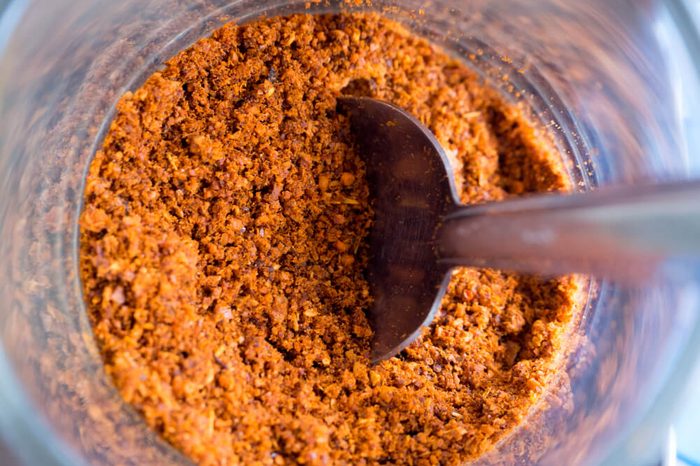Cayenne pepper has some impressive benefits
People with a taste for spicy foods can appreciate the heat of cayenne pepper, but the health benefits of the spice are just as noteworthy as the taste. Various antioxidants along with capsaicin, the substance that gives cayenne its fiery flavor, make this spice extra healthy. Here are some of the possible benefits of cayenne pepper. (You can also read more about other herbs and spices that are beneficial for your health.)

Relieve achy joints and muscles
Cayenne pepper may be a natural painkiller for achy joints and muscles. Capsaicin is the active ingredient in many over-the-counter treatments for arthritis and muscle pain. A 2014 review in the journal Progressive Drug Research found that the spicy stuff does dial down joint pain from osteoarthritis when applied topically to the skin. And according to the Arthritis Foundation, capsaicin creams also relieve pain from an autoimmune type of arthritis—rheumatoid arthritis—as well as the widespread pain condition fibromyalgia. Over time, these creams may reduce pain by over-activating nerve receptors, which affects their function and spares your pain. Try using one of these creams three times a day, but just be sure to wash your hands after handling them and keep them away from your eyes. (Learn more about taking supplements for joint pain.)

May reduce hunger
Fiery foods may actually dial down your appetite. A small 2014 study published in the journal Appetite found that when subjects ate spicy red pepper with a meal, they reported feeling fuller and had fewer food cravings afterward. Earlier research has suggested that chili peppers are natural metabolism boosters.

Unclog a stuffy nose
Capsaicin is a powerful fix for clogged up noses and sinuses. “It thins your mucous to allow for better drainage,” says Tania Elliott, MD, a clinical instructor in medicine at NYU Langone in New York. That can help whether you have a cold or allergies. Sprinkle it on food (it pairs surprisingly well with chicken noodle soup) and grab some tissues.

Boost circulation
Capsaicin may improve circulation and vascular health, according to a 2015 paper published in Open Heart. The authors cite previous research on capsaicin showing it helps with atherosclerosis, blood pressure, fatty liver disease, and angina. So you can add chili peppers to your list of foods that play a role in improving circulation and possibly helping you to stay healthy longterm.

A source of vitamin A
Cayenne pepper isn’t just tasty—it’s nutritious too. A dash contains many nutrients, including a bit of vitamin A, according to the USDA. What does vitamin A do? Foods with vitamin A protect your vision, preserve your brain function, and keep your skin healthy. This vitamin is an antioxidant that works to reduce inflammation by fighting free radicals. The recommended daily value for vitamin A is 5000 IU, according to the National Institutes of Health. One teaspoon of cayenne pepper nets you 749 IU.

Helps digestion
Research from 2016 in the Journal of Complementary and Integrative Medicine also suggests that the spice may increase digestive fluid production and deliver enzymes to the stomach, which may help digestion. More research is needed, but it suggests that these spicy wonders could play a role in great gut health.
